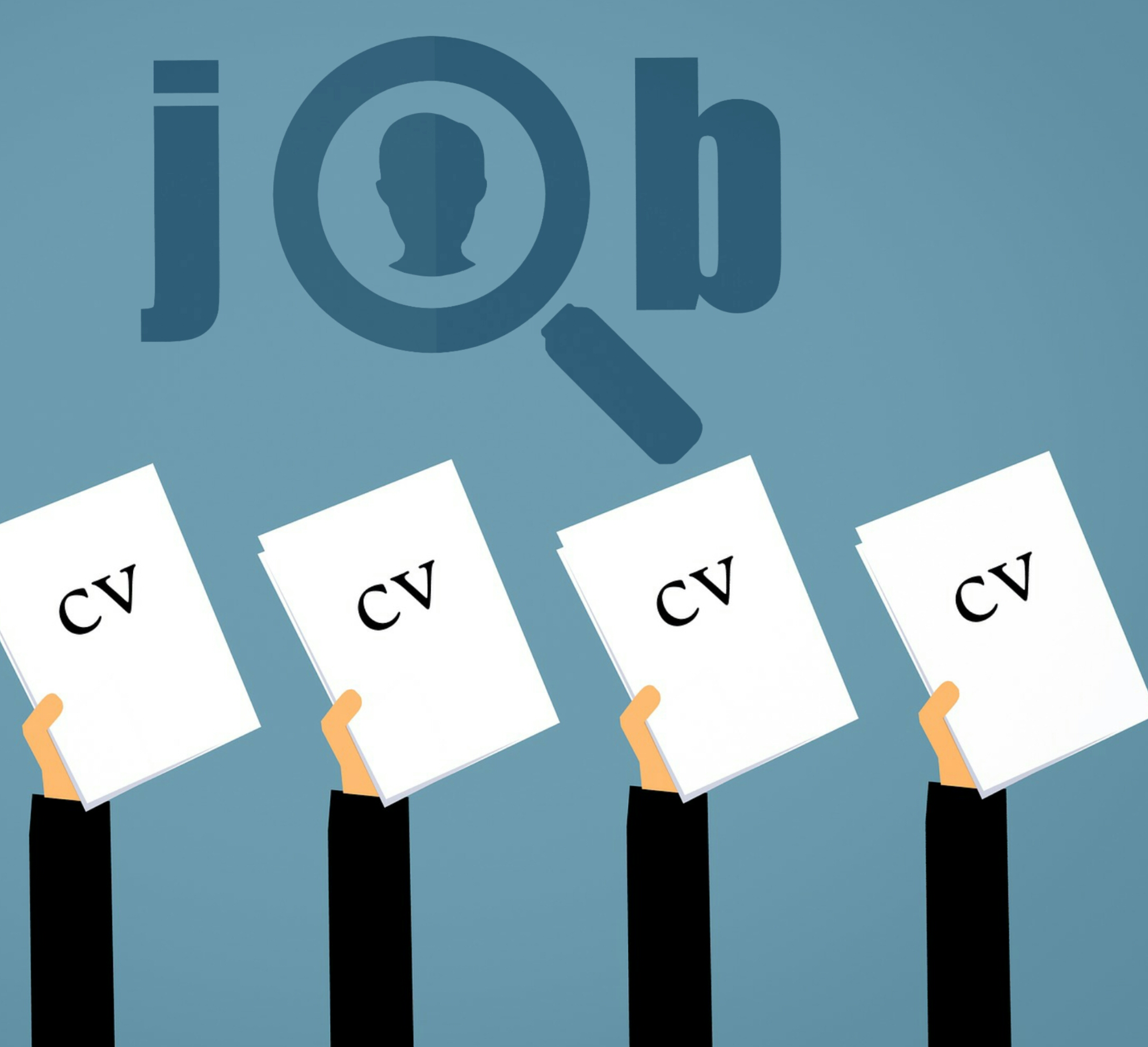The most in-demand profiles in the BioRegion
<p>September: the transfer window has closed for FC Barcelona, but it’s just opening for businesses. This month has more professional movement, in healthcare and life sciences companies too, than nearly any other. Forget about Neymar and Griezmann, the ones who will be signed these months are three-letter words: CMO, MLS, BDL, CMC, etc. Whether you’re planning a career shift or just want to know what’s happening at companies in the sector, don’t miss this post.</p>

The healthcare and life sciences sector employs more than 220,000 people, or 7% of the working population of Catalonia, according to data from the Biocat Report. Of these, 170,000 work in the network of healthcare providers and over 53,000 at biotechnology, pharmaceutical, medical technology, healthtech and professional services companies or sector suppliers, distributors and investment bodies. This group has grown 3.7% per year in recent years.
The quantitative figures clearly show this is an attractive sector for professionals. Which profiles, though, do these companies need? What skills and attitudes are they looking for? Where can job offers be found? Headhunters and HR consultants that specialize in the sector have answered these questions for us.
Startup seeking CEO: inquire within

Working for big pharma isn’t the only promising career option in the biomedical industry anymore. Each week, on average, one new company is created in the BioRegion of Catalonia: that’s why many professional opportunities in the sector are currently at start-ups. “Finding people to fill positions at start-ups made up 40% of our business last year,” explains Michael Thiele, founding and managing partner at LIM Global, a consultancy that specializes in recruitment for the life sciences sector.
What are these emerging companies looking for? “If we’re talking about biotechnology start-ups, the founders are normally scientists who need to hire CEOs to take care of the business side, or medical directors to handle the company’s external relations,” explains Diego Esteban, who has been working as a headhunter for the past 15 years and specializes in finding top executives for the healthcare sector and heads up the Russell Reynolds recruitment consultancy firm in Barcelona.
Can any good executive lead a start-up? The experts all firmly agree: no. “A start-up needs people who are quick and flexible, with entrepreneurial spirit, but who can also work methodically, rigorously, like they would at a multinational corporation, and this balance is hard to find,” warns Esteban, who has found executives for the top companies and research organizations in the BioRegion.
CMO: an international hire

One profile that is currently blowing up at biomedical start-ups is the CMO (Chief Medical Officer). Headhunters are looking for more and more specialized candidates, even with experience in a specific clinical area, who are also good communicators so they can handle relations with the various stakeholders. CMOs have a very specific profile that is hard to find locally but has become a priority for international investors. It is important to remember that more than half of the €106 million raised by start-ups in the BioRegion of Catalonia in 2018 was from venture capital funds and, of these, 75% through rounds of investment with foreign participation.
“Venture capitalists want the companies they invest in to hire people with experience who can get results quick because they’ve done it before in other companies. In Barcelona, the ecosystem is growing but young, so there are professionals who excel technically but don’t have much experience. It’s a question of time: maybe 5 years from now companies from other countries will come knocking on doors here to hire talent away from Catalan companies,” predicts Michael Thiele, of LIM Global.
And how can a foreign CMO be convinced to pick up stakes and come work at a young biotech firm in Barcelona? An attractive project, headhunters say, is the main draw, but no one wants to lose purchasing power. “You can’t headhunt an executive from London, Paris or Frankfurt with just the promise of quality of life: you have to offer a competitive salary, and investors know it,” explains Thiele. After overcoming the financial hurdle, the main problem tends to be family, as they are mainly young professionals with a partner who works and children in school. “We ask companies what they want: the best professional or the best professional willing to come to Barcelona. If they want the best, and that candidate can’t bring their family along, it is becoming more common to set up virtual work systems so they can limit travel to a few days a week,” highlights the founder of LIM Global. “Being in the office physically isn’t so important; being the best in the therapeutic area and being able to bring this knowledge to the company is what really matters -adds Thiele-. This flexibility is one thing start-ups have taken on board much faster than large pharmaceutical corporations."
Trending positions: experts in regulatory issues, quality and market access

If we look at companies with a fully developed product, there are positions that are as specialized as they are in demand: those that have to do with regulatory affairs, registries, quality and market access.
So, some of the most sought-after profiles are experts in QA/RA (Quality Assurance & Regulatory Affairs), which in smaller companies is normally a joint position held by one person and as the company grows can become a whole department. The mission: to make sure the products have the quality required by law and to coordinate registration so they can be sold on various markets.
This profile is especially desirable in the medtech sector. “A biotech firm can have many suitors looking to acquire the company, but in medtech there aren’t many large corporations,” argues Thiele. “That’s why product development is key for medical technology start-ups, which have to make sure their product works perfectly before they can transfer it to a multinational corporation in a cost-effective way.”
The perfect profile for these candidates? Degree in Pharmacy, for biomedical products, or other training in the healthcare sciences for healthtech companies, with growing interest in biomedical engineers.
The low rotation among this type of professionals puts them in especially high demand. “There are currently many candidates with experience in this area, but these are very stable positions,” explains Sergio López, a consultant in the Healthcare & Life Sciences Division at Page Personnel, who specializes in technical profiles and middle management. “It is more difficult, however, to find candidates with experience in regulatory affairs for medical technology, because there are more and more companies moving into the healthcare-products market and there aren’t enough candidates with specific experience to meet demand.”
Market access is another big area looking for both technical and management profiles. “In this arena, there are technical positions, like Real-World Evidence (RWE) o Health Technology Assessment (HTA), that analyze new technology to be put on the market and how to integrate it into the healthcare system; and more communication-based positions, like institutional relations profiles,” explains Sergio Hinchado, business manager of Life Sciences, the division of Hays that specializes in healthcare profiles.
These positions, unlike CMOs, can be covered with local talent: in fact, the regional atomization of the healthcare market in Spain has made this type of profiles a potential export.
Sales positions: reps go pro

Sales positions are still the most in-demand at multinational and consolidated companies with products already on the market, but gone are the days of the traditional door-to-door salespeople. The number of pharmaceutical sales representatives in Spain is estimated to have dropped from 15,000 to 8,000 in recent years.
“In the pharma sector 15 years ago, every physician was a decision-maker and sales were done on a personal basis, with all sorts of gifts and incentives,” remembers Sergio Hinchado, of Hays. “Now sales professionals are much more qualified and geared not only towards the physician’s needs but also those of the patients.”
The most sought-after profiles in sales are MSL (Medical Scientific Liaison), who interact with Key Opinion Leaders (KOLs); medical advisers, who act as a liaison between the market and research; and BDL (Business Development & Licensing).
Depending on the position, some companies prefer junior profiles who are a clean slate to be trained in the company’s specific sales model. Others, though, look for more senior profiles with experience. Either way, healthcare training is required. “Today, 60% of pharmaceutical sales representatives over 50 don’t have specific training in healthcare,” explains Sergio López, of Page Personnel. “For sales reps for generic or OTC products sold in pharmacies, negotiation and social skills are more important than a degree. In medical technology and healthcare products, however, it is becoming more and more common to recruit nurses with surgical experience who want to move into the industry.”
Digital profiles. sectors converge

The most sought-after profiles in the BioRegion of Catalonia are the same as those on the national and international markets. “The main difference between Madrid and Barcelona is that the main Spanish pharmaceutical companies are in Catalonia and have their factories here, which need everything from lab or formulation techs to people in charge of the whole production chain,” says Sergio Hinchado, of Hays. Some of the most in-demand profiles include experts in Chemistry Manufacturing Control (QMC) to oversee the move from research to industrialization.
Also booming are digital profiles for a wide variety of positions, from process integration to digital marketing. “The pharmaceutical industry has traditionally been very prone to inbreeding, promoting only from within. However, to hire digital talent they are looking to professionals from sectors with less regulatory oversight like consumer goods, telecommunications and, even, banking,” reveals Hinchado. At digital health companies, IT profiles are the most in demand (developers, etc.).
Where to make yourself visible and where to find vacancies?

If, after reading this post, you’ve decided to start getting your resume out there, you can start by updating your LinkedIn profile: this popular professional network has become one of the main tools consultants use in their searches and a good showcase for offers from all sectors.
Executive offers, however, aren’t normally made public. “LinkedIn is a great recruitment tool for executives, but references and word of mouth end up being the main source of talent,” recognizes Diego Esteban, a headhunter with Russell Reynolds. “LIM Global has a database of over 50,000 professionals. We publish our job offers but for top positions we get so few applicants that we have to go out and sell the project to professionals who already have other positions,” adds Michael Thiele.
In any case, we recommend having a look at the Biocat Job offers and Internships page. Here, in addition to internal vacancies at Biocat, you’ll find more than 60 new specialized job offers in the sector each month. It is totally free for both candidates and recruiters (companies or consultants), who can post their job offer by filling in a simple form.
Spoiler: Biocat is launching a new monthly newsletter in October focusing on job offers. If you don’t get our emails yet, subscribe here and mark your preferences.
Good luck!


